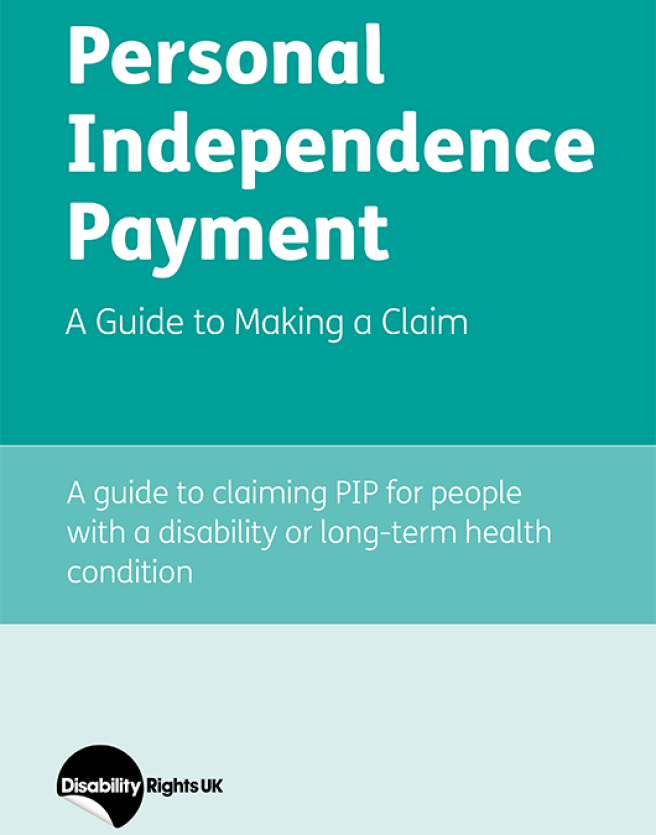Personal Independence Payment (PIP)

Personal independence payment (PIP) is a benefit for people between the ages of 16 and pension age who need help taking part in everyday life or who find it difficult to get around.
In Scotland, PIP has been replaced by adult disability payment.
You can start your PIP claim by phone; the numbers are on the government website.
On this page you can download our guide to making a claim for free, as well as accessing links to other relevant information.
You can also purchase a hard copy of the guide from our online shop.
Revised and updated: 22nd April 2025
Contents
Personal independence payment and adult disability payment in hospital

Want to donate?
These factsheets will always be free, so that everyone who needs them can access them, no matter what!
However, if you found them helpful and are able to, why not consider making a small suggested donation of £1 towards our work?
What our PIP Guide contains
Disability Rights UK has produced this guide to help you through the claiming process. The guide covers information on:
- The PIP rules
- The scoring system
- The activities and descriptors
- Filling out the claim form
- Keeping a diary
- The assessment with a healthcare professional
- What to do if you are not happy with your decision
- Further help and information
Download the guide from the bottom of this page.
PIP rates
The weekly rates for PIP are:
Daily living component
Standard rate - £73.90
Enhanced rate - £110.40
Mobility component
Standard rate - £29.20
Enhanced rate - £77.05
Personal independence payment and adult disability payment in hospital
Both the day you are admitted and the day you are discharged count as days out of hospital.
Personal independence payment (PIP) and adult disability payment (ADP) stop after a total of four weeks (either in one stay, or several stays, where the gaps between stays are no more than four weeks each time) if you are aged 18 or over on the date you are admitted to hospital.
This limit does not apply if you are aged under 18 on the date of admission; PIP and ADP can be paid for an indefinite period as long as the other qualifying conditions are met.
If you claim PIP or ADP when you are already in hospital, it cannot be paid until you leave.
Challenging PIP decisions
If you disagree with the decision on your PIP claim, you must first ask the DWP to look at the decision again - this is called a mandatory reconsideration.
If you disagree with the mandatory reconsideration, you can then appeal, where your case will be heard by an independent tribunal - the ‘First-tier Tribunal’.
For more detailed information on how to challenge a decision please read our appeals and mandatory reconsideration resource.
Government guidance on PIP
Personal independence payment assessment guide for assessment providers
Guidance for health professionals carrying out PIP assessment activity and for those responsible for the quality of PIP assessments.
Personal independence payment handbook
Detailed guidance about Personal Independence Payment (PIP) – the benefit for people with a health condition or disability.
Find out more
Advice
Turn2Us have created a PIP Helper
Use advicelocal to get advice in your area
See also our Getting Advice guide
If you are an adviser see our Disability Rights Handbook



